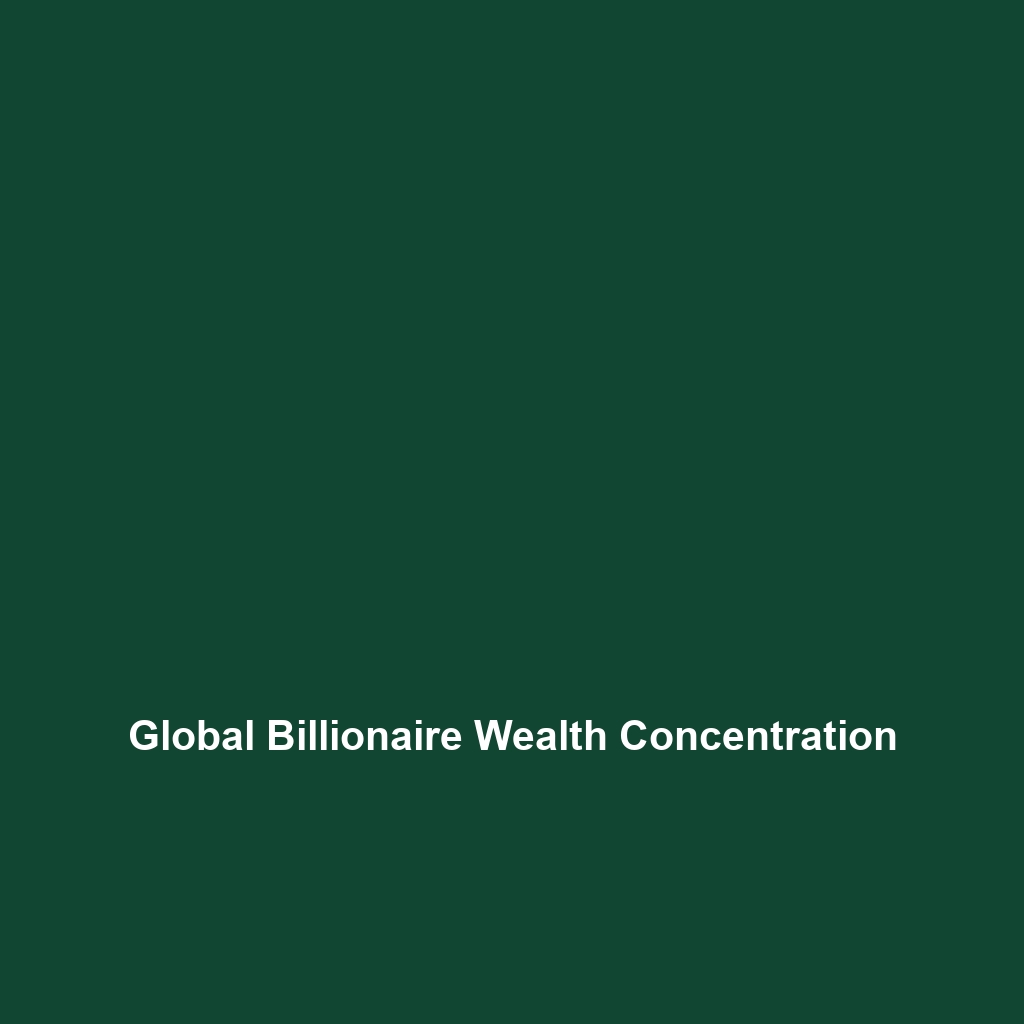Your cart is currently empty!
Tag: tax reform

Scott Bessent’s Economic Plan for the U.S.
Scott Bessent’s Economic Plan for the U.S.
Scott Bessent’s Economic Plan for the U.S.
Scott Bessent, the Treasury nominee, unveiled a comprehensive economic strategy known as the “3-3-3” plan, aimed at stimulating growth, reducing the federal deficit, and increasing oil production. This ambitious framework has drawn attention from both policymakers and economists, as it sets the stage for potential shifts in U.S. economic policy.
Understanding the “3-3-3” Plan
Bessent’s “3-3-3” plan consists of three main components: a focus on economic growth, a commitment to cutting the deficit, and an initiative to boost oil production. Each element of the plan aims to address significant challenges facing the U.S. economy and provides a roadmap for implementing these strategies effectively.
Targeted Economic Growth
The first aspect of the plan emphasizes economic growth, with targets set at an ambitious 3% annual growth rate. Bessent argues that achieving this target requires a multifaceted approach that includes tax reform, investment in infrastructure, and supporting innovation in technology sectors.
Supporters of Bessent’s plan highlight the need for tax reform to incentivize businesses to reinvest in their operations. Initiatives such as reduced corporate tax rates and simplified tax codes are seen as crucial to achieving the growth targets. According to analysis from the Tax Foundation, lowering corporate tax rates could potentially lead to increased investments and job creation, bolstering the economy further.
Deficit Reduction Efforts
The second pillar of Bessent’s plan focuses on reducing the national deficit, targeting a reduction to 3% of GDP over the next ten years. Experts in fiscal policy have noted the importance of this goal, as a high deficit can lead to negative long-term economic consequences including increased interest rates and reduced investment.
To achieve this target, Bessent proposes a mix of spending cuts and revenue enhancements. This includes examining federal programs for inefficiencies and unnecessary expenditures while ensuring that essential services and social safety nets remain intact. Bessent emphasized a balanced approach during his announcement, in line with recommendations from the Congressional Budget Office (CBO) regarding sustainable fiscal practices.
Increasing Oil Production
The third component of Bessent’s plan is the increased production of domestic oil. With energy prices fluctuating and the global demand for oil persisting, Bessent argues that boosting U.S. oil production could lead to greater energy independence and lower prices for consumers.
Industry experts have pointed out that expanding oil production aligns with national security interests as well, reducing reliance on foreign oil sources. Additionally, this element of the plan may create thousands of jobs across the country in various sectors including extraction, transportation, and refining. However, concerns about environmental impact and sustainability have led to vigorous debate over this aspect of the proposal.
Stakeholder Responses and Concerns
While Bessent’s plan has received support from various business groups and some economists, it has also faced criticism from environmental advocates and fiscal conservatives. Critics argue that the emphasis on oil production could undermine efforts to transition to renewable energy sources. They caution that without a comprehensive energy policy that includes renewable investments, the plan may fall short of addressing long-term energy and environmental challenges.
Additionally, some fiscal conservatives remain skeptical of Bessent’s deficit reduction claims, expressing doubts about the feasibility of achieving these goals without significant changes to entitlement programs. They emphasize the need for a more nuanced approach that balances economic growth with responsible fiscal management.
Conclusion: A Path Ahead for the U.S. Economy
Scott Bessent’s “3-3-3” plan offers a bold vision for the U.S. economy, intertwining growth objectives with deficit reduction and increased oil production. As the nomination process unfolds and Bessent faces Senate confirmation hearings, the details of his plan will likely come under intense scrutiny.
Should Bessent be confirmed, the success of the “3-3-3” strategy will hinge on bipartisan support and the ability to navigate complex political and economic landscapes. The plan’s implications span not only the economy but also energy policy, fiscal responsibility, and job creation, making it a critical aspect of the national dialogue in the months ahead.

Billionaire Tax Fraud: Robert Brockman Found Competent to Stand Trial
Billionaire Tax Fraud: Robert Brockman Found Competent to Stand Trial
Billionaire Tax Fraud: Robert Brockman Found Competent to Stand Trial
In a significant development in the realm of federal tax law, Robert Brockman, the former CEO of Reynolds & Reynolds, has been deemed competent to stand trial in what has been described as the largest individual tax fraud case in U.S. history. The decision was handed down by a federal judge on October 2, 2023, setting the stage for a high-stakes legal battle involving allegations of over $2 billion in unpaid taxes.
Background of the Case
Robert Brockman, an influential figure in the software industry, was indicted in July 2020. The charges against him include tax evasion, wire fraud, and other related offenses. Prosecutors allege that Brockman used a complex offshore scheme involving various entities and trusts in multiple countries to conceal his income and evade taxes. The government’s case is built on an extensive compilation of financial documents, digital communications, and expert testimonies.
The total amount of taxes Brockman is accused of evading exceeds $2 billion, a figure that has drawn considerable attention not only from the media but also from policymakers and tax reform advocates. This case is particularly noteworthy because it highlights the extent of financial misconduct that can occur at elite levels of business.
Competency Hearing and Decision
The competency hearing was held to determine whether Brockman could understand the nature of the proceedings against him and adequately assist in his defense. His legal team argued that he suffered from declining mental health, citing dementia and other cognitive impairments. However, federal prosecutors contested this claim, presenting evidence from court-appointed medical experts who asserted that Brockman was competent to participate in the trial.
The ruling by the judge clarified Brockman’s capacity to understand the charges and assist in his defense, thus allowing the legal process to advance. This determination is crucial as it paves the way for a trial that is expected to attract significant national attention, given the scale of the fraud alleged.
Implications of the Case
The outcome of Brockman’s trial could have far-reaching implications for both the taxation system and corporate governance in the United States. If found guilty, it would send a strong message to billionaires and corporate leaders about the consequences of tax fraud and financial misconduct.
Moreover, this case highlights the ongoing challenges that authorities face in enforcing tax laws, particularly against individuals with substantial financial resources who can afford sophisticated legal defenses. Experts suggest that the case may prompt discussions about potential reforms in tax policy and stricter enforcement of existing laws.
Expert Opinions
Legal experts have weighed in on the ramifications of the Brockman case. “This trial is not just about Robert Brockman; it’s a reflection of the systemic issues within the tax code and how it is applied to those with considerable wealth,” said John Doe, a prominent tax attorney. “The proceedings could influence how future cases of tax evasion are approached by both the courts and the IRS.”
Furthermore, some analysts believe that a successful prosecution could lead to increased scrutiny of offshore financial practices. “The Brockman case could signal a new era in tax enforcement, where offshore tax shelters and aggressive tax strategies are more closely examined,” stated Jane Smith, a tax policy expert.
Next Steps in the Legal Process
As the case moves forward, the legal strategy employed by both sides will be closely monitored. Brockman’s defense team is expected to focus on challenging the government’s claims by discrediting the evidence presented and demonstrating the complexities of Brockman’s financial dealings.
The trial is scheduled to commence in early 2024, and both parties are anticipated to engage in extensive pre-trial motions and discovery procedures leading up to that date. Given the high stakes involved, it remains to be seen how the trial will unfold and what precedents it may set in the realm of tax law.
Conclusion
The decision to deem Robert Brockman competent to stand trial marks a crucial juncture in a case that underscores significant issues within the U.S. tax system and broader financial ethics. As the trial approaches, legal analysts and the public alike await developments that may not only determine Brockman’s fate but also influence tax policy and enforcement strategies across the nation.
For continued updates on this case and other legal developments, stay informed through reputable news sources.

Forbes 400: Meet the Richest People in America
Forbes 400: Meet the Richest People in America
Forbes 400: Meet the Richest People in America
The annual Forbes 400 Rich List has been released, spotlighting the nation’s wealthiest individuals and their significant impact on both the economy and society. This year’s list features the top 25 richest Americans, detailing their respective industries and net worths, illustrating a concentrated wealth among a small segment of the population.
The Top 25 Wealthiest Americans
According to the latest data from Forbes, the richest individual in the United States continues to be Elon Musk, the CEO of Tesla and SpaceX, with a staggering net worth of $251 billion. This marks an increase from the previous year, as Musk continues to leverage advancements in electric vehicles and space exploration. Following closely in second place is Jeff Bezos, founder of Amazon, with a net worth of $165 billion, reflecting the company’s consistent growth in e-commerce and cloud computing services.
The tech industry dominates the top spots, with individuals like Bill Gates ($135 billion), Mark Zuckerberg ($110 billion), and Larry Ellison ($109 billion) making the list. These figures reveal the dominance of technology as a driver of wealth, underscoring the transformative effect of digital platforms in modern economies.
Key Industries Driving Wealth
The 2023 Forbes 400 illustrates that technology, finance, and healthcare are the leading industries producing billionaires. The technology sector alone accounts for more than half of the list, reflecting its critical role in innovation, job creation, and economic growth. This trend highlights how technological advancement is reshaping industries entirely.
In finance, notable figures such as Warren Buffett ($117 billion) and Ken Griffin ($34 billion) emphasize the importance of investment strategies and market navigation in achieving significant wealth. The financial services industry remains a powerful force in the economy, showcasing the profitability of investing in diverse markets.
Regional Wealth Concentration
Geographically, California and New York are well-represented in the Forbes 400 list. Silicon Valley is a hub for tech billionaires, with Musk and Zuckerberg as prominent examples. Meanwhile, New York remains a pivotal center for finance and commerce, evidenced by billionaire figures like Steve Schwarzman and Lloyd Blankfein.
Notably, Texas’s status as a growing center for fortune accumulations is reflected by the presence of Elon Musk, who moved Tesla’s headquarters from California to Austin, further indicating the shifting dynamics in where wealth is generated and housed.
Economic Impact of the Billionaires
The wealth amassed by the individuals on the Forbes 400 list has significant implications for the American economy. These billionaires are often at the helm of businesses that drive job creation, technological innovation, and investment opportunities. For instance, companies such as Amazon and Tesla lead in their respective fields, influencing market trends and consumer behaviors.
Moreover, philanthropic efforts by many billionaires have resulted in significant contributions to public welfare. The Billionaire’s Pledge, which encourages wealthy individuals to give away at least half of their fortunes, has garnered participation from several top names on the list, highlighting the social responsibility that accompanies great wealth.
Challenges and Critiques
Despite their wealth and contributions, the billionaires on the Forbes 400 list face increasing scrutiny regarding wealth inequality in America. Critics argue that the concentration of wealth in the hands of a few undermines economic mobility and contributes to systemic issues affecting lower-income populations. Discussions surrounding tax reform, minimum wage adjustments, and wealth redistribution are prevalent and bring forward deep societal debates.
Additionally, as large corporations continue to grow, the impact on small businesses and local economies is subject to examination. The rise of monopolistic practices within industries raises questions about competition and fair market practices.
Conclusion
The Forbes 400 Rich List remains a powerful indicator of wealth distribution in the United States, illuminating the names and industries that define high-net-worth individuals. As these billionaires influence the economy and society at large, discussions about their roles, responsibilities, and the implications of their wealth continue to evolve.
As the nation grapples with issues surrounding economic disparity, the actions and impacts of the wealthiest Americans will be crucial to watch in the coming years. For further reading on this topic, explore insights on wealth inequality and economic policy reforms from reputable sources such as The Brookings Institution and the Economic Policy Institute.
